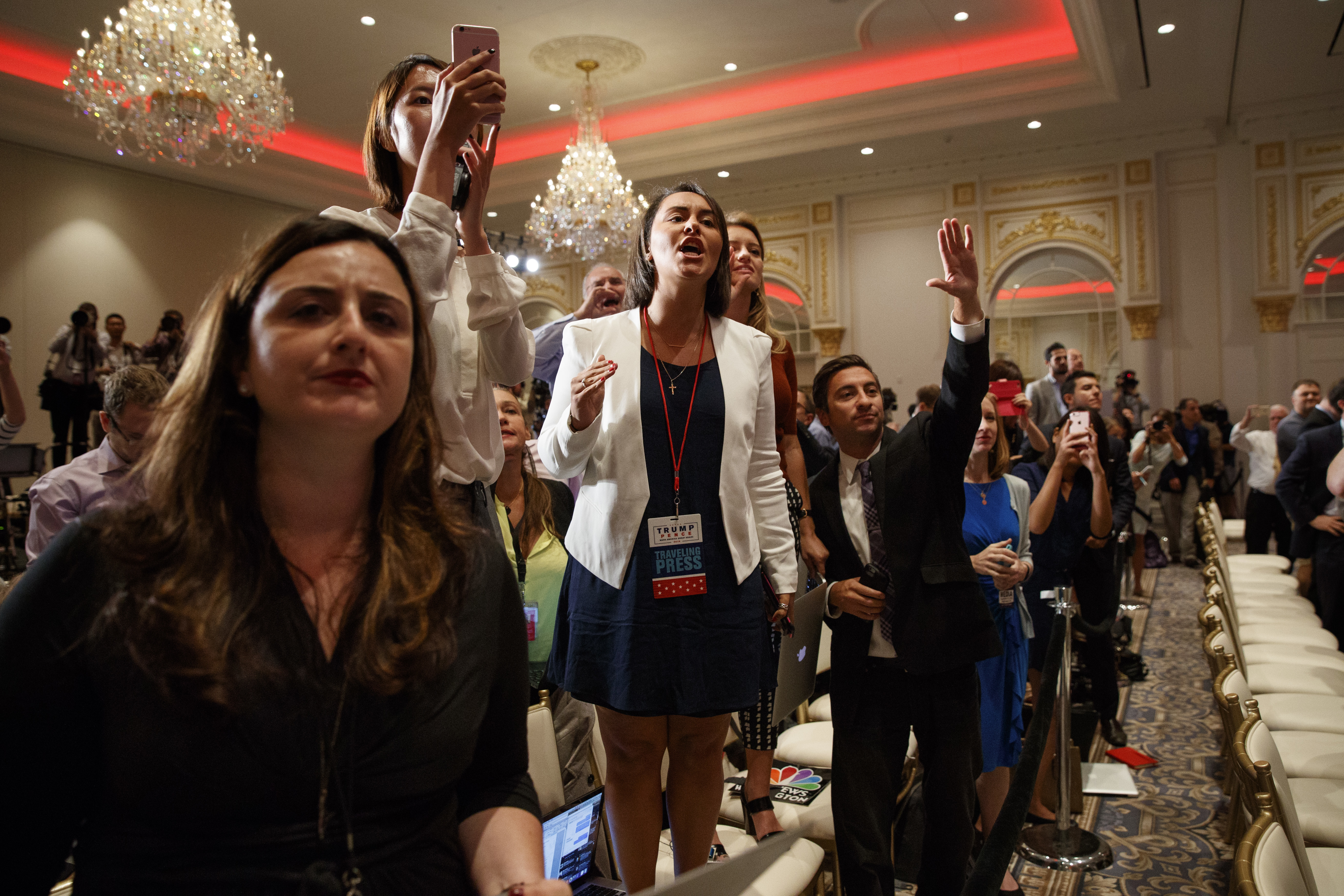
Ashley Feinberg, a senior writer at Deadspin, is urging the nation’s journalists to abandon their ethics (yes, I knew as soon as I wrote that line that the comments section will write pithy and predictable responses) for what she thinks is a greater good: keeping Donald Trump from the White House.
She reasons that since so many reporters probably recorded interviews with Trump, or used him as a source in their gossipy stories, there are plenty of revelations just waiting to be made public by the reporters, revelations that will finish off a sinking ship, she figures.
The thing standing between the public and this information, if not the law, is the sacred “reporter’s code,” which places the promise of confidentiality above the journalist’s duty to inform the public. This is, at root, practical: The reporter keeps information secret so they can get more and (presumably) more important information down the road. This argument is no longer relevant. What could possibly be more important than telling the public everything there is to know about the nationalist would-be autocrat who, even in disgrace, remains terrifyingly close to becoming president?
Past his specific policy stances (insomuch as any even exist), reporters should burn Trump because he is cancerous, attacking not just the health of the body politic but its ability to be healthy. If there’s one thing he hates more than bad press, it’s not being in control of the press at all. So the only option, as far as he’s concerned, is neutering the First Amendment itself. There’s a reason he asked Peter Thiel to speak at the Republican National Convention, and why Thiel’s name has been floated as a potential Supreme Court nominee.
Granted, the campaign has so stripped dignity and civility from our shores that it’s nearing an insult to use United in our name. But if the most important ethic of journalism should fall too, the harm to the nation will be incalculable. Nobody with information to share will trust a reporter if they renege on their promises to their sources, even if the source is named Donald Trump.
Ironically, that’s a scenario the Obama administration might love, as Politico’s Jack Shafter pointed out in his pushback to Obama earlier this year, after the president lectured journalists on how they should cover Trump.
Obama’s “Insider Threat Program” has turned employees across the government—from the Peace Corps to the Social Security Administration to the Department of Agriculture—into information-squelching snitches. If this isn’t Trumpian behavior, I don’t know what is.
“Obama hates the press,” New York Times national security reporter James Risen said not long ago, “and he hates leaks.” AP Washington Bureau Chief Sally Buzbee has decried the “day-to-day intimidation of sources” by the Obama administration, judging it worse than the Bush administration on that score. And in a 2013 piece, POLITICO’s Jim VandeHei and Mike Allen documented Obama’s mastery of “limiting, shaping and manipulating media coverage of himself and his White House.”
Feinberg’s proposal accomplishes just that.
A few reporters over the years have gone to jail or lived with the threat of imprisonment because they defied government attempts to force them to reveal sources.
They did so with good reasons. If sources can’t trust the journalists, they don’t have sources. If they don’t have sources, they don’t have information.
With little to no support from the American people, only they and their ethics stood between them and the kind of world Donald Trump has imagined.
It’s illogical to suggest that the way to prevent such a world, is to voluntarily create it.
